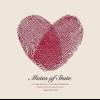有声双语|“Z世代”的青少年都在关注什么?
“Z世代”这一新名词指的是出生于1996-2010年之间的年轻人。和先前几代人相比,“Z世代”的年轻人似乎更有担当,对未来有更清晰的规划,也更加关心家国大事。
CFP
Being “young” is associated with all the good things in life – beauty, hope, and energy. But youth also has negative associations – impulsiveness, trouble-making, and irresponsibility. This negative side seems to be what society focuses on more, which is why young people have mostly been depicted as idle and difficult.
“青春”总是与人生中所有的美好联系在一起 —— 美丽、希望以及活力。但青春也有一些负面因素 —— 冲动、惹麻烦、不负责任。社会似乎更关注这些消极的方面,因此年轻人常常被描绘成游手好闲、固执挑剔的形象。
But when it comes to Generation Z – those born between 1996-2010 – this stereotype doesn’t seem to apply anymore.
但对于“Z世代”(出生于1996-2010年之间的人)而言,这种刻板印象似乎不复存在。
In Japan, for example, Gen Z-ers are less likely to buy on impulse, but take into consideration more a product’s true value. “They’re looking at the companies, not just the products,” Masahiko Uotani, CEO of Japanese cosmetics company Shiseido, told Bloomberg. “They’re asking, ‘Are they really delivering value to the society? Are they promoting diversity and inclusion?’”
比如,日本的“Z世代”不太可能冲动购物,而是会更加考量产品的真正价值。“ 不光是产品,他们也会了解公司,”日本化妆品公司资生堂总裁鱼谷雅彦在接受彭博社采访时表示。“他们会问:‘这些公司的确在向社会传递价值吗?它们在推广多元化与包容度吗?’”
Gen Z-ers are also more grounded than we’ve expected them to be. According to a recent survey by Bank of America, more than half of young adults aged between 18 and 23 said they were planning to buy a house within five years. And they’re not just saying it – they are willing to make sacrifices for it, including getting a second job and saving money for down payment instead of spending it on a vacation.
Z世代也比我们想象的要更踏实。美国银行近期的一项调查显示,超过半数的18-23岁年轻人表示,自己计划在五年内买房。他们不只是说说而已 —— 他们愿意为此做出牺牲,比如打两份工存钱付首付,而不是把钱花在度假上。
“Despite their young age, this group is pragmatic and actively planning for their future,” D. Steve Boland, head of Consumer Lending at Bank of America, told USA Today. “They have a clear vision how they are willing to help themselves in order to make it happen.”
“尽管这一代人还年轻,但他们相当务实,并且积极规划未来,”美国银行消费信贷主管D.史蒂夫·博兰在接受《今日美国》采访时表示。“他们对如何帮助自己达成人生规划,有着清晰的设想。”
Social issues are also at the center of concern of Gen Z-ers, who consider themselves as a changing force of the world. In India, for example, young people who have just reached the voting age are eager to vote for a new leader who is capable to solve problems that matter the most to them, including pollution, unemployment and women’s safety.
社会问题也是Z世代关注的重点,他们认为自己拥有改变世界的力量。比如,在印度,刚到法定选民年龄的年轻人十分期盼能够投票选出一位有能力的新领袖,解决他们大多数人最关心的问题,如污染、失业以及女性安全等。
“Women’s safety is the major issue for me,” Monika Dalal, 20, a psychology student in India, told the Associated Press. “I’ve been to the villages and seen how girls are treated. They are not educated. And even if they do go to school, they are forced to marry right after completing grade 12.”
“女性安全对我而言是一大问题,”20岁的印度心理学学生莫妮卡·达拉尔在接受美联社采访时表示。“我曾去过村子里,亲眼目睹过女孩们的遭遇。她们没有受过教育。就算她们上了学,也会在上完12年级之后被迫结婚。”
As a Gen-Zer yourself, what is your plan for the future?
作为一名“Z世代”,你未来的规划又是什么呢?
本文英文音频由我报外籍编辑 Daniel Daugherty朗读
1、头条易读遵循行业规范,任何转载的稿件都会明确标注作者和来源;
2、本文内容来自“21世纪英文报”微信公众号,文章版权归21世纪英文报公众号所有。

























